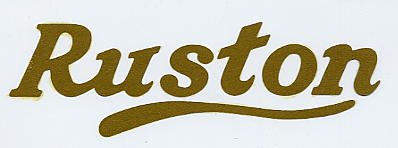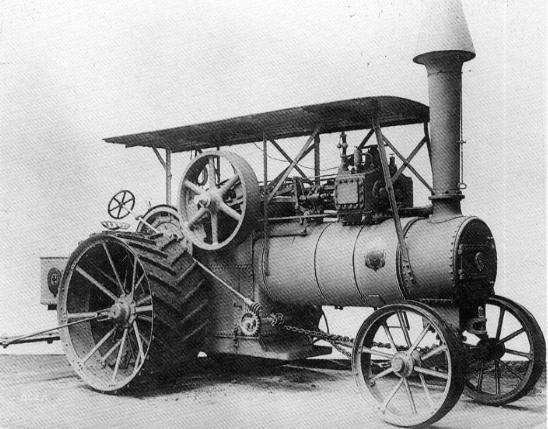


1997 marked 140 years of the Ruston & Hornsby engineering company - and 100 years since the death of its founder, Joseph Ruston. The following pages are a copy of a paper written by Ray Hooley to trace the evolution of the company that grew in size from 25 men producing a small range of agricultural implements, to an engineering factory covering 20 acres and employing 2350 people. Even after his death in 1897 the Company continued to flourish, with a world-wide market for its steam, gas, petrol and oil engines, threshers, excavators, pumps, mills, locomotives etc. The Company achieved a peak of 10000 employees during World War II.
Through various mergers and takeovers the Company has flourished into the present highly successful European gas Turbines Ltd. - an Anglo-French company in the GEC Alsthom Group. Since the paper was written in 1997 the GEC Alsthom companies have been reorganised and are now known simply as The Alstom Group.

Ruston purchased his share for $855. Within a few years the share was to become worth many times that amount. The firm of Ruston & Proctor prospered and employed several hundred men by the time Mr Proctor retired in 1864.
Joseph Ruston had established an impressive network of overseas agencies, and the Company's portable and stationary steam engines, threshing machines, elevators, corn mills, boilers, pumps etc., were in heavy demand. These products were constantly winning prizes at exhibitions all over the world. Ruston adopted the motto: "My Customer is my Best Friend". He insisted on a quality of product that pleased his customers. They became his friends and recommended his products to their friends. Thus the firm grew apace.

Joseph Ruston was a super salesman by any standards. He travelled to Russia in 1880 to negotiate a deal for steam engines and pumps to drain 8 million acres (32,000sq km) of the Pripet Marshes. On the way back he heard of large oil strikes at Baku. He immediately headed in that direction and won large orders for oil-field equipment. A few years later Ruston persuaded a group of Lancashire businessmen that a ship canal from Liverpool to Manchester would be an economic viability if Ruston-built mechanical excavators were employed. Orders for more than 70 Ruston Dunbar excavators were received (see picture above)



Joseph Ruston decided that it was the right time to go Public. He received £465,000 as the purchase price, and remained Chairman of the new Company. The workshops then extended over 15 acres (60,000 sq m) and were equipped with over 600 machines, 50 cranes, and 70 steam engines, supplying 800hp (600kW)
• Main • History menu •